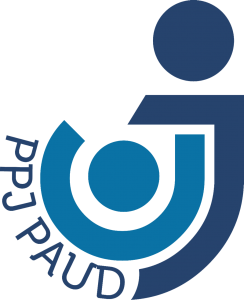Assessment of government’s involvement in implementation of national policy on early childhood education in Nigeria
DOI:
https://doi.org/10.26555/jecce.v3i2.2066Keywords:
Government’s involvement, Implementation, Early Childhood EducationAbstract
The study examined the areas of Government’s involvement as stated in the national policy on early childhood education in South western Nigeria. It determined the implementation processes of the national policy on ECE on the areas of Government’s involvement and also investigated the level of compliance in the implementation processes of the national policy on ECE and the stakeholders' assessment of Government’s involvement in the implementation of the national policy on ECE. The study adopted descriptive survey research design. Data was collected from 72 head teachers, 144 classroom teachers and 144 parents of early childhood education pupils as well as 30 State Ministry of Education officials. Multistage sampling procedure was used to select the sample for the study. Three instruments were used for this study. The results of the study showed that governments were involved in the regulation of the establishment and registration of pre-school facilities at 91.7% and 96.7%, development and implementing educational support services to orphans and vulnerable children at 51.4% and 90%. The study concluded that Government’s involvement in the implementation of the national policy on early childhood education is only to a little extent. All the implementation processes of the national policy on education were not followed by the government.  Â
References
Ajayi, H. O. (2008). Early childhood education in Nigeria: A reality or a mirage? Contemporary Issues in Early Childhood, 9(4), 375–380. https://doi.org/10.2304/ciec.2008.9.4.375
Akinbote, O. (2006). Pre-primary and primary education in Nigeria: A basic text. Ibadan, Nigeria: Sterling Horden Publishers Nig. Ltd.
Begi, N. (2014). Use of Mother Tongue as a Language of Instruction in Early Years of School to Preserve the Kenyan Culture. Journal of Education and Practice, 4(3), 37–49.
Even, T. A., & Armstrong, S. A. (2011). Sandtray for early recollections with children in Adlerian play therapy. The Journal of Individual Psychology, 67(4), 391–407.
Falana, A. D. (2004). Evaluation techniques and implementation at different levels. Nigeria: FBK Press.
Federal Republic of Nigeria. (2013). National Policy on Education. Lagos: NERDC Press
Iloh, C. N. (2013). Assessment of implementation in early childhood education in Ogoja education zone, Cross River State. An M.Ed Project Submitted to the Department of Educational Foundations, University of Nigeria.
Kabay, S., S., W., & Yoshikawa, H. (2017). So that his mind will open: Parental perceptions of early childhood education in urbanizing Ghana. International Journal of Educational Development, 57, 44–53. https://doi.org/10.1016/j.ijedudev.2017.08.013
Nakpodia, E. D. (2003). The role of nursery education on primary school pupils in Nigeria. Journal of Teachers Education, 6(10), 1-2.
Nakpodia, E. D. (2011). Early childhood education: Its policy formulation and implementation in Nigerian educational system. African Journal of Political Science and International Relations, 5(3), 159–163. DOI 10.5897/AJPSIR.9000036
Nation Bureau Statistics (2016). National school census. Retrieved from https://www.nigeriastat.gov .ng/nada/index.php/catalog/9
Njoku, Z.C. (2001). “Primary School Teachers’ Perception of the Factors affecting children’s
Access to Basic Education in Eastern States of Nigeriaâ€. J ournal of Primary Education, 2(1),
Oluwafemi, O. ., Nma, A., Osita, O., & Olugbenga, O. (2014). Implementation of Early Childhood Education:A Case Study in Nigeria. Universal Journal of Educational Research, 2(2), 119–125. https://doi.org/10.13189/ujer.2014.020203
Shekarau, M. I. (2014). Honourable minister of education foreword in early childhood development standards for Nigeria. Abuja, Nigeria: FME.
United Nations Educational Scientific and Cultural Organization. (2003). Education for All Global Monitoring Report. Gender and Education for All: The Leap to Equality. https://unesdoc.unesco.org/ark:/48223/pf0000132513
Wolf, S., Aber, J. L., Behrman, J. R., & Tsinigo, E. (2019). Experimental Impacts of the “Quality Preschool for Ghana†Interventions on Teacher Professional Well-being, Classroom Quality, and Children’s School Readiness. Journal of Research on Educational Effectiveness, 12(1), 10–37. https://doi.org/10.1080/19345747.2018.1517199
Downloads
Published
How to Cite
Issue
Section
License
Authors who publish with this journal agree to the following terms:
- Authors retain copyright and grant the journal right of first publication with the work simultaneously licensed under a Creative Commons Attribution-ShareAlike 4.0 International License that allows others to share the work with an acknowledgement of the works authorship and initial publication in this journal.
- Authors are able to enter into separate, additional contractual arrangements for the non-exclusive distribution of the journals published version of the work (e.g., post it to an institutional repository or publish it in a book), with an acknowledgement of its initial publication in this journal.
- Authors are permitted and encouraged to post their work online (e.g., in institutional repositories or on their website) prior to and during the submission process, as it can lead to productive exchanges, as well as earlier and greater citation of published work (See The Effect of Open Access).















